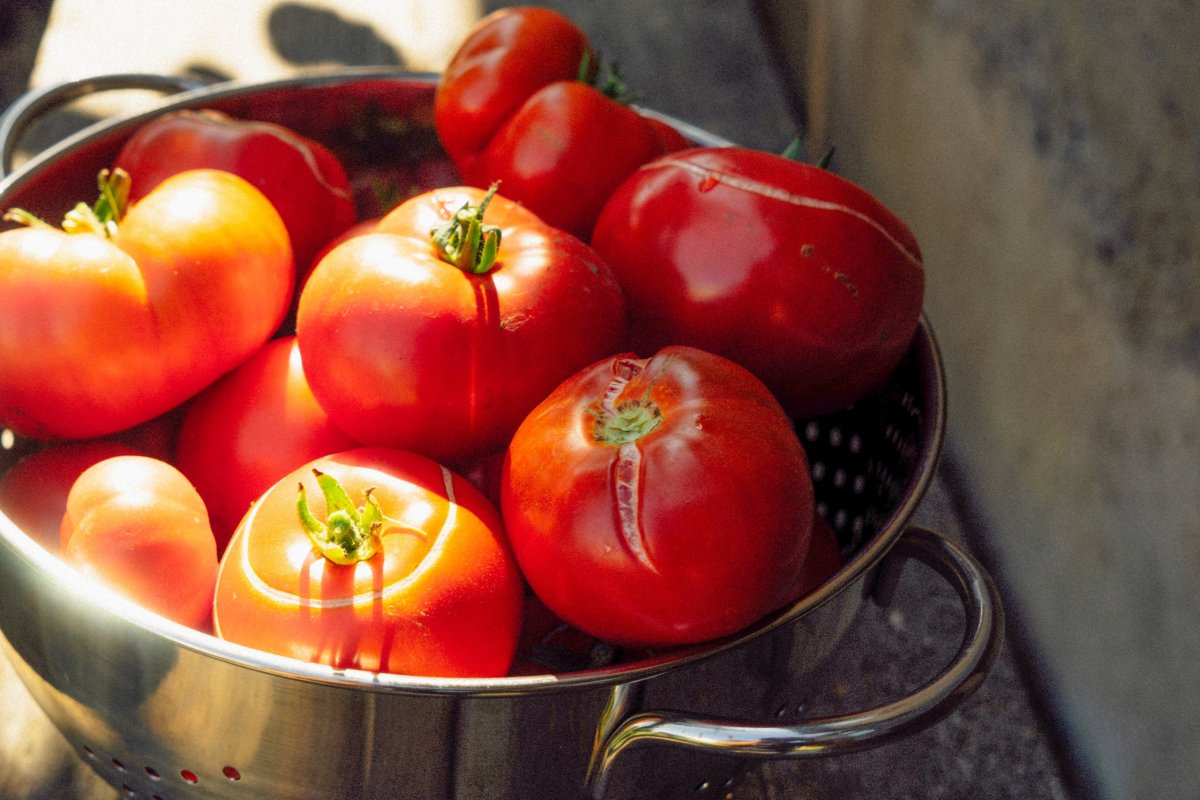Deep in the volumes of garden lore, there are mysteries and codes, surprises and stories. Many have fascinated gardeners for years. Yet one remains mysterious: Why do tomatoes split?
Your vines are growing tall and green, the flowers bud, and little round tomatoes appear. They’re perfect tiny green spheres at first. Slowly they grow and turn pink, then red. They’re beautiful. And there’s a big crack in all of the best ones. What went wrong?
In truth, it’s not a big mystery.
Discover 7 top tips for growing, harvesting, and enjoying tomatoes from your home garden—when you access the FREE guide The Best Way to Grow Tomatoes, right now!
Why do tomatoes split? Find out why and what you can do about it.
It’s not so much a question of why do tomatoes split. The real questions are whether or not you should worry about it and if you can prevent it.
The short version is this: Tomatoes split because the fruit grows faster than the skin. When tomatoes get close to harvest, the skins grow slowly while the plant is still pumping water into the fruits. When the plant receives inconsistent water, or a big influx of water, the skin can’t stretch fast enough to keep up with the growth.
You may notice it happens after a big rainstorm or if the soil around your plant dries out and you give it a lot of water. So why do tomatoes split? Too much water too fast. And to some degree, you can prevent this.
Make sure you have well-drained soil. I know. You’ve heard this about 10 billion times. But you don’t want your plants to get too much water all at once. Nor do you want root rot, so really, you’re accomplishing several things here.
Water your tomatoes consistently. How often that is has several factors, such as the density of the soil, whether your tomatoes are in a container or in the ground, and the weather.
Plant tomatoes in a raised bed. This gives any excess water extra space to drain.
Use mulch. This takes us back to the question of why do tomatoes split. When the soil around your tomatoes goes from very dry to very wet, all that water gets sucked up into the fruits, and the skin can’t keep up with the growth. So mulch will help keep the soil moist between waterings and help even out the moisture levels. A two or three-inch layer of mulch is ideal.
Harvest your tomatoes regularly. Tomatoes will continue to ripen once they’re harvested. So one way to prevent splitting is to pick them before they have that chance. Collect them as soon as they ripen, or even just before.
So there we have it. Why do tomatoes split? Answered! What can you do about it? Answered. Now one last question remains. Is it okay to eat tomatoes that have split?
For the most part, yes. Head out shortly after a rainstorm and if you notice any tomatoes that have split, go ahead and harvest them. Splitting is primarily an issue with ripe or nearly ripe tomatoes, so go grab them even if you’re a little early.
The issue with leaving split tomatoes on the vine is that they can attract harmful insects and be susceptible to disease. And if you do find a split tomato and it feels squishy or smells bad, toss it into your compost pile.
Have you had issues with tomatoes splitting or cracking? How did you solve the problem?
Discover 7 top tips for growing, harvesting, and enjoying tomatoes from your home garden—when you access the FREE guide The Best Way to Grow Tomatoes, right now!

3 replies on “Why Do Tomatoes Split and How to Stop It”
And if you pick off green tomatoes from the plants, put all the green tomatoes in a paper bag, (like the grocery store paper bags, roll up the top so no light gets in. Leave for about a week or so, inside is fine, and you’ll be surprised how fast they turn red!
Very helpful indeed! I always thought they split because of too much heat.
I didn’t know that. Thank you so very much for that explained help.